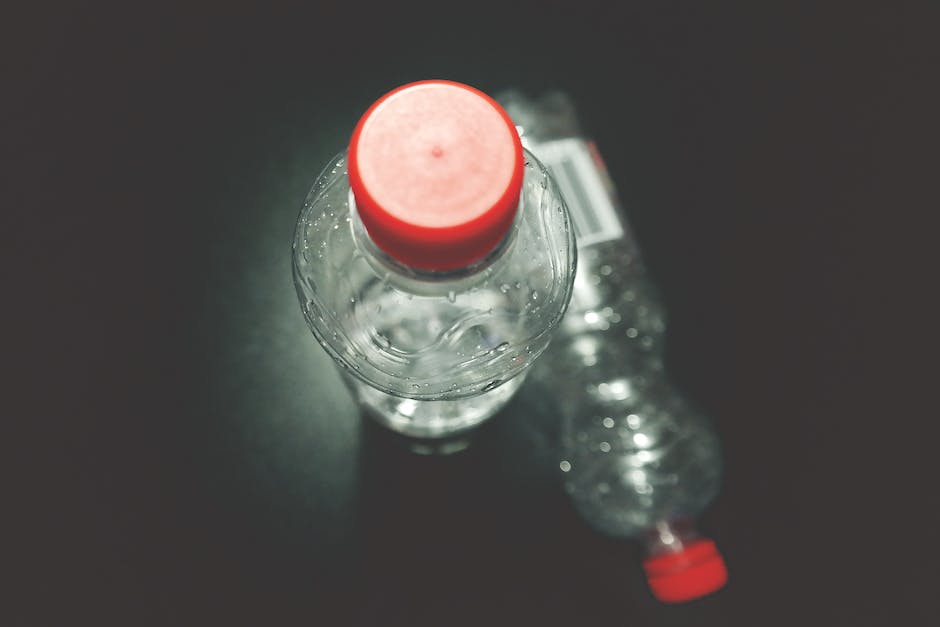Hydration, the lifeblood of human physiology, plays an exceptional role in how our bodies function and perform. The significance of water intake transcends the mere quenching of thirst as it impacts everything from the performance of our vital organs to our physical strength and mental acuity. This integral relationship between water and our overall health often goes unnoticed until we start dealing with the consequences of dehydration – a hazard not exclusive to athletes but to every individual. This increase in awareness has led us to dig deep into understanding the science behind hydration, how it impacts athletic performance, and practical tips to ensure we stay adequately hydrated.
Understanding Hydration
The Role of Water in Our Bodies
Water is not merely a thirst-quencher, it’s a crucial component in our bodies, making up around 60% of our body weight. It performs vital roles, including transportation of nutrients and oxygen to the cells, regulation of body temperature through sweating and respiration, and assistance in flushing waste materials mainly through urination. Water also acts as a lubricant and cushion, protecting our joints, spinal cord, and tissues. For these reasons, staying well-hydrated is of paramount importance.
Hydration and Physical Performance
Physical performance can be profoundly affected by hydration status. When one is well-hydrated, it ensures cardiovascular efficiency and promotes endurance and strength. On the contrary, even minor dehydration can hinder physical performance; studies have found that a reduction in body weight by around 2% due to dehydration may lead to noticeable decreases in physical performance. This can result in quicker fatigue, reduced motivation and increased perceived effort during physical activities.
Signs of Dehydration
Dehydration does not only hinder physical performance but can also negatively impact cognitive function and mood. Early signs of dehydration include dry mouth, fatigue, and increased thirst. Psychological impacts such as irritability and lack of concentration can also manifest. In severe cases, dehydration can lead to delirium and unconsciousness.
The Health Consequences of Chronic Dehydration
Chronic dehydration, a prolonged state of inadequate water intake, can result in serious health issues. It can strain the kidneys, leading to long-term health conditions such as kidney stones, urinary tract infections, and in rare cases, kidney failure. Moreover, long-term dehydration can result in circulatory problems and lowered immunity.
Impact on Mental Clarity
The relationship between water intake and cognitive operation is also noteworthy. Dehydration can impact cognitive abilities, including memory, attention, and motor coordination. Some studies suggest that prolonged dehydration can lead to difficulties in decision making or problem solving. These impacts can be particularly prominent in high-heat environments, underlining the importance of adequate hydration for all physical and mental activities.
Hydration Tips for Improved Physical Performance
For enhanced physical performance and overall health, drinking plenty of water regularly is crucial. In general, a minimum of eight glasses of water per day is recommended, but individuals should increase this intake with increased physical activity or in hotter climates. Rehydrating following exercise is equally important, as substantial fluid loss can occur through sweating. Finally, in addition to water, a balanced diet provides essential electrolytes that help to maintain optimal hydration levels.
Factors such as age, weight, activity level, and overall health strongly influence individual hydration needs. Given these variables, it’s imperative to personalize your daily water intake according to your unique requirements and conditions.

Water Intake and Physical Performance
Understanding the Correlation Between Hydration and Optimal Physical Performance
Encompassing about 60% of the human body’s weight, water is central to the execution of various bodily functions such as transporting nutrients, aiding digestion, and regulating temperature. During physical exertion or participation in sports, our bodies generate heat that is shed through perspiration. If the lost fluid isn’t effectively replenished, the risk of dehydration spikes which can lead to lowered physical performance.
Impacts of Dehydration on Athletic Performance
Dehydration can detrimentally affect athletic performance in many ways. A decrease in hydration status as little as 2% can significantly reduce physical performance. It can compromise cardiovascular function, reducing the blood volume which hampers the heart’s ability to deliver oxygen and nutrients to the muscles. This can lead to a decrease in endurance and speed as the muscles are unable to perform at their maximum capacity. Furthermore, dehydration can lead to muscle cramps, fatigue, and perceived exertion.
Scientific Studies on Hydration and Physical Performance
Several scientific studies validate the direct relationship between hydration and physical performance. A study published in the Journal of Strength and Conditioning Research found that dehydration by 2.5% of body mass impairs strength, power and high-intensity endurance. Yet another study in the Journal of Athletic Training observed that dehydration over 2% of body mass decreases cognitive performance which also impacts decision making and concentration during sports and exercise. Therefore, it is crucial to stay adequately hydrated before, during, and after workout sessions.
Why Athletes Need More Water
Athletes perform vigorous and intensive workouts that demand more water intake than an average person. The intensity of their training leads to higher sweat rates and a faster metabolism that increases their fluid needs. Moreover, athletes often train in varied environments which can affect their hydration needs. For instance, those training in hot, humid climates may sweat more and thus require a larger quantity of water.
Furthermore, fluid needs vary depending on the type of sport, duration, intensity, individual sweat rate, and the environment. This requires athletes to constantly monitor their hydration status and consume an adequate amount of fluids before, during, and after their training sessions. Poor hydration can lead not only to decrease in performance but also severe health complications like heatstroke.
Water and More: Electrolytes’ Importance to Physical Performance
During intense physical activities, sipping only water may not fully cater to your body’s needs. The reason behind this is that your body not only loses water but also crucial electrolytes like sodium and potassium, which are contained in sweat. When you replenish water supplies without an adequate amount of these electrolytes, you can end up under a health threatening condition known as hyponatremia, defined as having low blood sodium levels. Hence, in addition to water, it’s recommended to intake sports drinks or food items rich in electrolytes to help maintain the correct water balance in your body, all which is necessary to ensure peak performance.

Practical Tips for Hydration
Harnessing Hydration for Enhanced Physical Performance
The volume of water consumed has a direct relationship with one’s physical performance. It’s vital to keep your body sufficiently hydrated to support energy levels, build endurance, and maintain an overall well-functioning body. Considering our bodies, and muscles, are about 70% water, this underlines the significance of sustaining an optimal water balance for both overall health and enhancing physical performance.
Lower body water levels, a state called hypohydration, can negatively impact your muscular strength and endurance, making it difficult to handle physical strain during workouts. More severe dehydration could cause symptoms like dizziness, mental fatigue, and muscle cramps. There’s even research to suggest that a mere 2% loss of body fluids can significantly impact athletic performance.
Recommended Daily Water Intake
The general recommendation for daily water intake is approximately 3.7 liters (or about 13 cups) for an average adult male, and 2.7 liters (or about 9 cups) for an average adult female. However, athletes and those participating in strenuous physical activity may require more to replace the fluid lost through sweat.
Individual hydration needs can vary depending on several factors, including age, sex, weight, and the type and intensity of exercise. One way to check for proper hydration is the color of your urine; pale yellow typically indicates good hydration, while a darker shade might suggest you need to drink more water.
Proper Hydration: Before, During, and After Exercise
Before a workout, aim to consume 500ml (around two cups) of water two to three hours prior, giving your body adequate time to absorb the water and expel any excess through urine. Just before you start, consume a further 250ml.
During exercise, the aim is to replace the fluid lost through sweat. On average, you should try to consume 150-250ml of water every 15-20 minutes during your workout. However, for workouts longer than an hour, a sports drink with electrolytes can be a valuable addition to retain hydration balance.
After a workout, replenishing lost fluids is critical. As a guideline, aim to drink 500-750ml of water for every pound of weight loss during exercise.
Hydration Myths and Realities
Contrary to the myth that sports beverages are always preferable over water, they are typically only necessary for intensive workouts or activities longer than an hour. For most casual exercisers, water is the perfect hydration solution, bringing no additional sugars or calories consumed through many sports drinks.
Also, thirst is not a reliable early indication of the body’s need for water. If you feel thirsty, your body has already entered the beginning stages of mild dehydration, which is why consuming water regularly throughout the day even when not thirsty is recommended.
Hydration Guidance for Different Types of Workouts
The hydration needs may vary for endurance exercises when compared with strength training. Endurance exercises like running, cycling, or swimming for extended periods can lead to substantial sweat loss, thereby necessitating higher fluid consumption, whereas strength training, typically carried out in short, high-intensity bursts, may not demand as much fluid replacement. Regardless of the type of workout, ensure to drink enough water to maintain hydration levels.
Remember that adequate hydration is a key component of physical performance, and neglecting it could lead to negative impacts on your health and performance outcomes.

With today’s rise in health consciousness, it is gratifying to identify and debunk myths about hydration while adopting scientifically backed practices to maintain optimal fluid balance in our bodies. The direct relationship between water intake and physical performance, though often overlooked, can profoundly influence our athletic potential and overall health. Therefore, engaging common-sense tactics, understanding water consumption patterns and differentiating between hydration needs during various workouts, fortify our defenses against the pitfalls of dehydration. Committing to proper hydration practices helps us fully leverage our bodies’ capabilities and pursue our health and fitness goals relentlessly.
